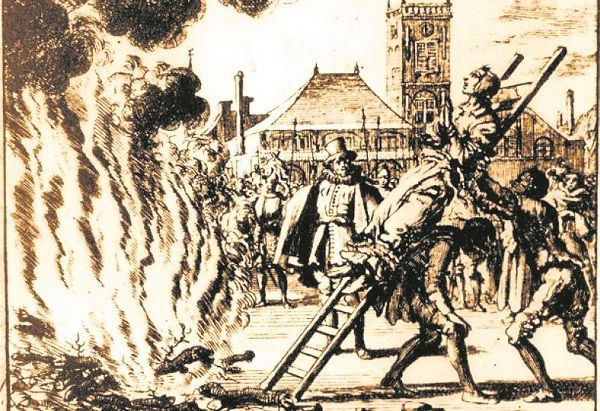Tonight, many Danes will gather around a bonfire to sing Midsummer hymns and watch a witch doll being burnt as part of the Skt Hans Aften festivities. Now, as an international you might be surprised to see the witch doll being burnt, but the tradition is not as old as you might think.
Sank Hans Aften has been an important part of Nordic tradition for a very long time. It was named after John the Baptist, the man who baptised Jesus. On June 23, not only is his birthday celebrated, but it’s also the longest day of the year – although it does not always coincide with the true summer solstice.
The ‘witch burnings’ have caused heated public debates over the years, with people considering the ritual to be offensive to women, while others see it as a tradition that has to be upheld.
To give you a clearer image about the meaning behind the ritual, The Copenhagen Post talked to Louise Hauberg Lindgaard, who is researching the historic Danish witch trials as part of her PhD at the University of Southern Denmark and one of the people behind HEX! Museum of Witch Hunt.
A rather new tradition
According to Lindgaard, the witch figure has only been part of the festivities since the late 1800s, and it has nothing to do with actual witch executions.
Most likely, the tradition was imported from Germany, where in some parts it still is a common practice to burn a witch doll on Walpurgis Eve.
Although burning witch dolls has only been common for about a hundred years, Sankt Hans Eve has always had an association with magic, Lindgaard explained.
Back when people were actually persecuted for witchcraft, there was a strong belief that witches were particularly active on holidays.
Therefore, several actions were taken to keep them away – one of the most popular one was lighting up bonfires that were believed to scare evil forces away.
A dark chapter for Denmark
During the 16th and 17th centuries, roughly 1,000 people convicted of witchcraft were burned alive in Denmark and Norway. The last victim in Denmark was burned in 1693.
“How we remember history is definitely a discussion worth having – especially as that era was a very dark chapter for Denmark,” Lindgaard mentioned.
Although between 85 and 90 percent of the accused witches were women, Lindgaard emphasised that “it was not a hunt for women, but a hunt for witchcraft. Although society was indeed misogynic, no one was executed just because they were women.”
















